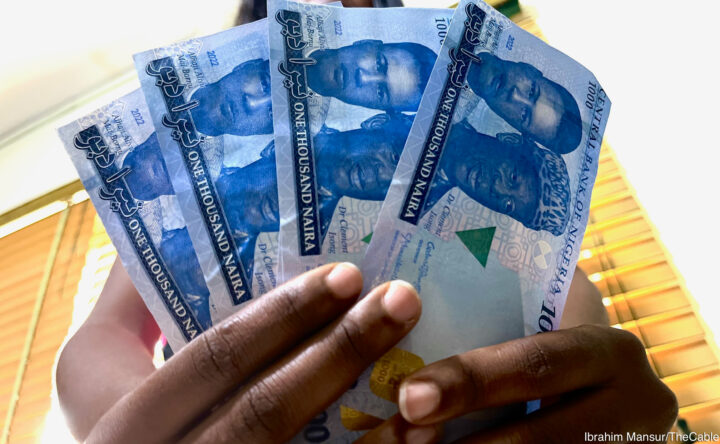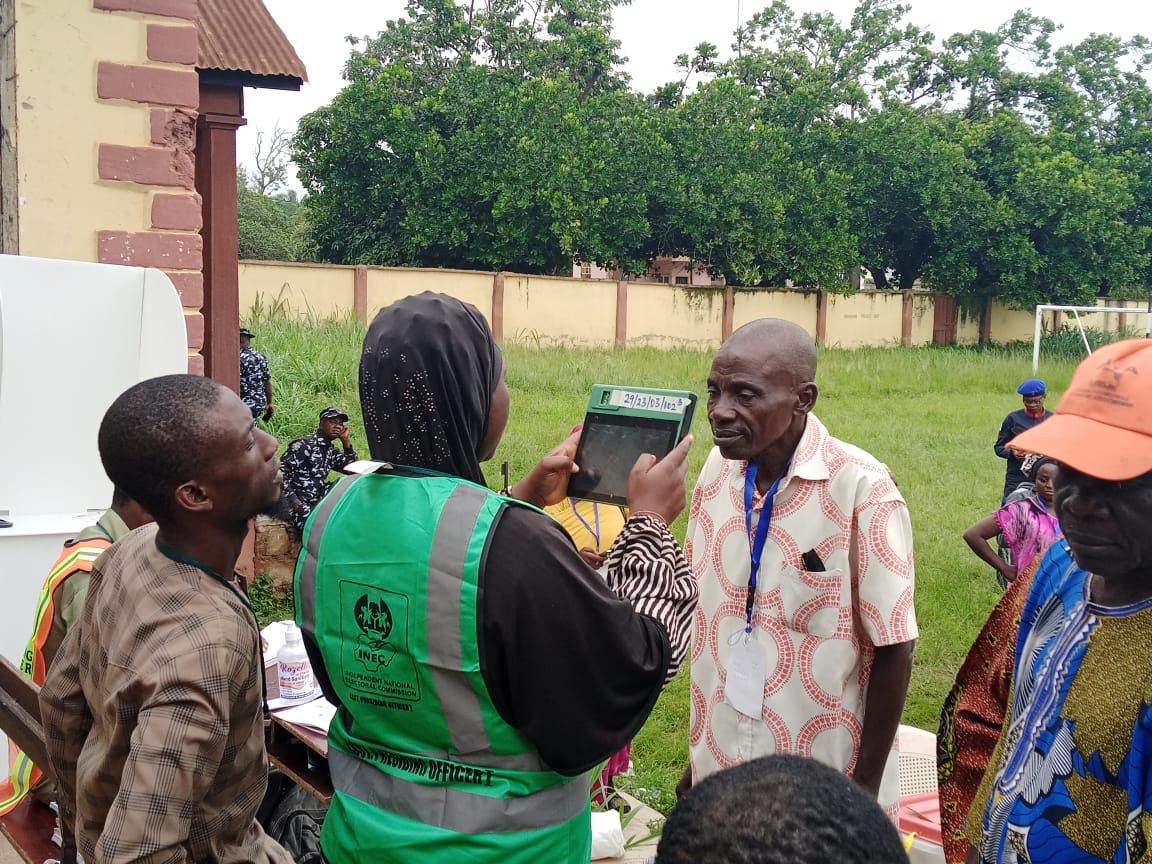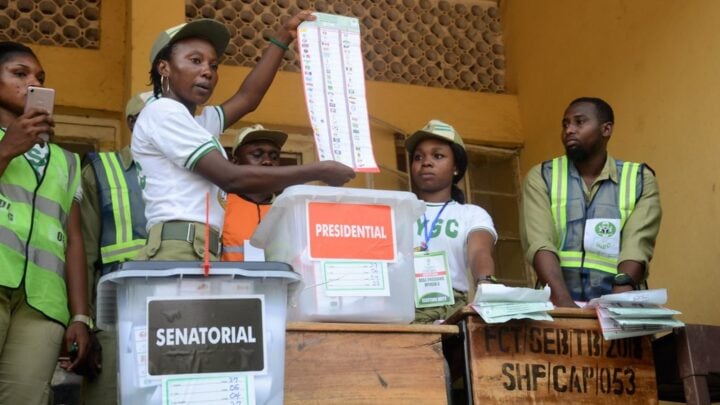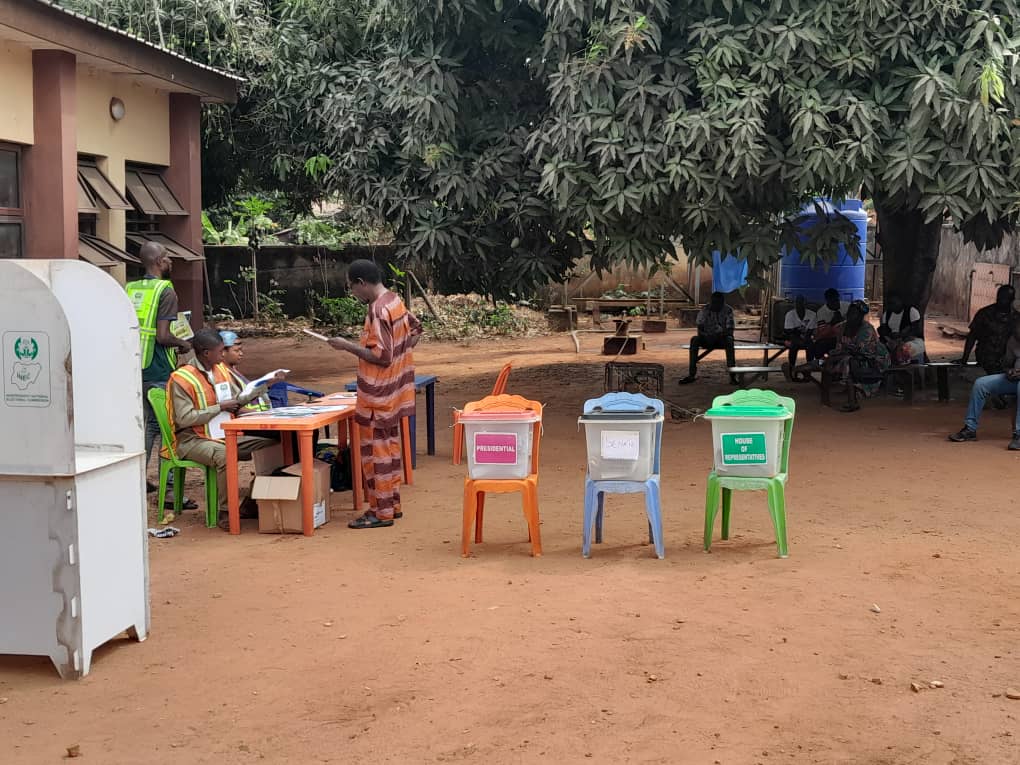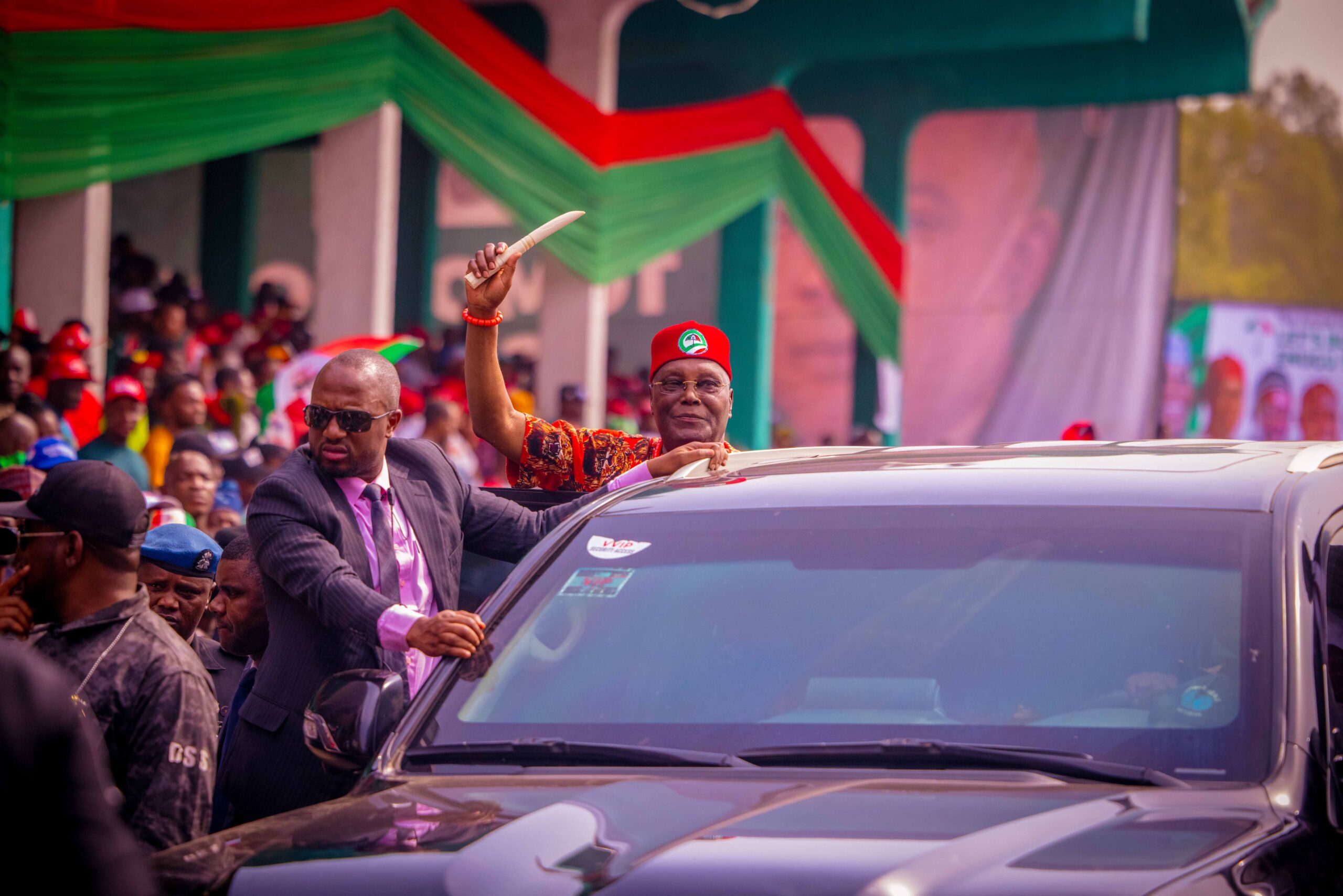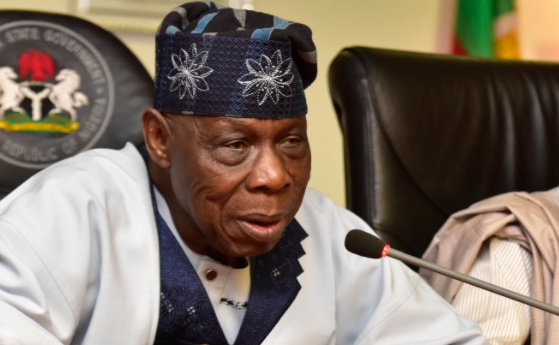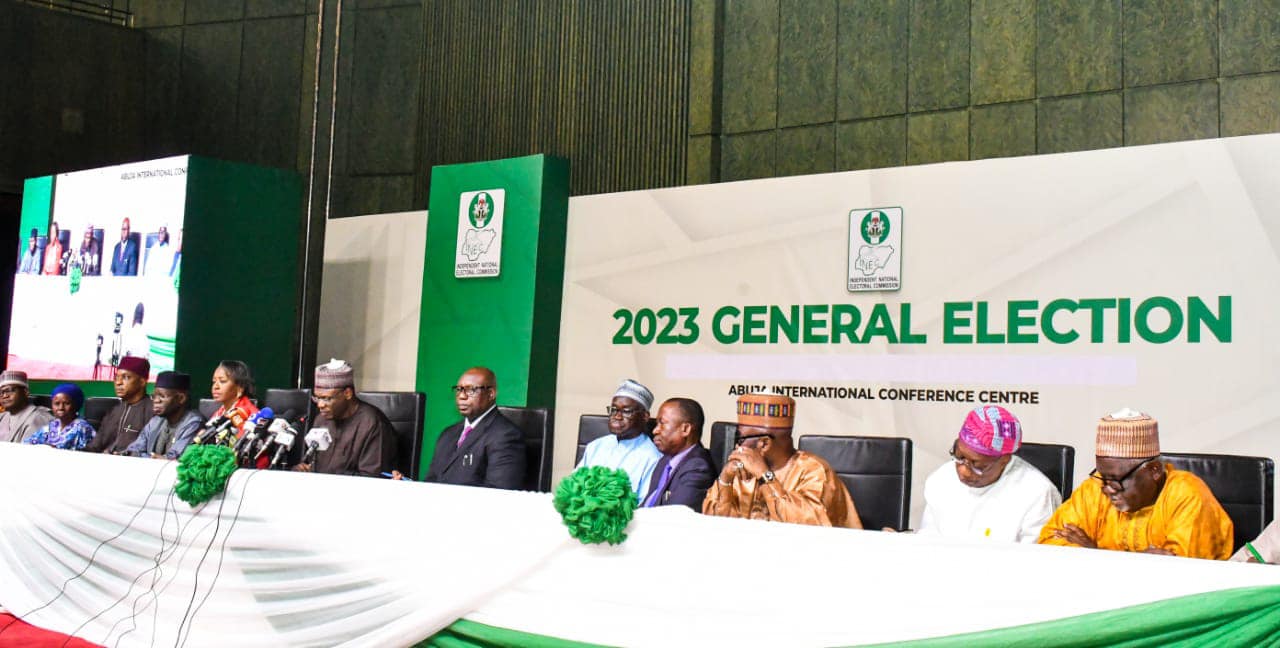The 2023 presidential, and national assembly elections have been conducted and Nigerians are back to their familiar daily struggles of not only how to earn their livelihood but also how to access their savings; the struggle to enjoy the fruit of their labour. Imagine having money saved somewhere, and you are not sure of being able to spend it, when, and how you want. This is no thanks to the Central Bank of Nigeria’s (CBN) naira notes redesign policy that has the three highest denominations of ₦200, ₦500, and ₦1000 notes wearing new looks (some people say, recoloured). Its implementation has been haphazardly lumped up with the stillborn “cashless policy” which has, over the years, suffered violent somersaults.
The naira redesign policy was announced, sometime, in October 2022 and was to come into effect on December 15, 2022, but it was brought forward by about three weeks – launched on November 23 last year. Then, a deadline of January 31, 2023, was set for Nigerians to return the old notes to the (deposit money) banks as a method of permanent withdrawal from circulation. But against the dictate of commonsense and logic, at the ATMs, the banks continued to reissue the deposited old notes, less than a month before the deadline as there was no sign of adequate supply of the redesigned notes. Nigerians began to get worried as the CBN governor, Godwin Emefiele, remained adamant that there was no going back on the deadline. With the overt backing of President Muhammadu Buhari, Nigerians began to get the memo that the former managing director of Zenith Bank Plc. was not joking.
Then the Nigerians in us kicked in, and bank officials began to hoard the little that was made available, and profiteer from its sales to those who operate Point of Sales (POS) services. Naira becomes as scarce as forex, if not scarcer. Micro, small and medium-scale enterprises (MSMEs) became, almost, paralysed. Petty traders, the majority of whom are unbanked, started losing patronage as it was no longer advisable for them to accept the old notes and electronic transfer of funds was out of the equation as far as they were concerned. The people in the rural area are the hardest hit. The new (redesigned) notes were not available, yet they must keep body and soul together. Those POS operators who have access to the notes began to charge, as much as 40% on every withdrawal, depending on the location.
Sensing the impending danger it portends to the socio-economic prosperity, peace, and stability of the nation, the state governors of Zamfara, Kogi and Kaduna approached the supreme court, seeking to get the federal government to stop the CBN from proceeding with the implementation of the policy banning the old notes from being legal tenders. The apex court, on February 8, issued an injunction restraining the CBN from going ahead with the policy until the substantive case is determined, as the case was adjourned to February 15, 2023. No sooner was the injunction issued than the Attorney-General and Minister for Justice, Abubakar Malami who is supposed to advise and educate the federal government (the president) on the need to obey the court order, went to town, with a statement that the supreme court has no jurisdiction over the matter. He hinged the argument on the provisions of section 251, subsection 1(d) of the 1999 constitution, which exclusively places such matters under the jurisdiction of the federal high court. On February 15, the matter was adjourned again until February 22, 2023. The supreme court has now fixed March 3, 2023, for the judgment.
Advertisement
While all these forth and back were on, hapless Nigerians, who in this case, are the proverbial grasses that suffer wherever and whenever two elephants fight, continue to be humiliated and dehumanised, over the quest to access their hard-earned money deposited with the commercial banks. Imagine, someone who has millions of Naira in his bank account but needs just N200,000 or less to attend to an urgent medical need, being made to make do with a ration of ₦2000 per day! Some people would even have to spend much more than the ₦2000 daily ration to get to the nearest bank to their locations. So, it is not worth it.
Why do Nigerians have to go through all these? Emefiele said the policy was designed to, among other things, control inflation by reducing the volume of cash in circulation (one of the conventional ways of tackling inflation), discourage payment of ransom to kidnappers, and above all, stop vote-buying at the polls by politicians. Some people interpreted it to mean that it was the CBN governor’s way of getting back at his politician colleagues for getting the ruling party’s presidential ticket at his expense – remember, he is a politician with an eye on the presidency. He even obtained the nomination form for the All Progressives Congress (APC) presidential primary election last year and had also acquired a fleet of vehicles for the campaign.
In the run-up to the 2023 presidential election, one of the gravest concerns of stakeholders in the political milieu was the menace of vote-buying. So one of the reasons for the policy, we were told, is that a “cashless economy” will give no room for such an act of corruption. But it did not go without generating mixed reactions from Nigerians. While some questioned the sincerity of the purported purpose on account of timing, some were willing to endure, even though it brought untold hardships upon the people. People’s husbands and wives were seen screaming, weeping, and striping naked in the banking hall, while some were scaling fences to protest their inability to withdraw their savings to meet pressing family needs. People lost their loved ones in the process. To make matters worse, mobile transfer platforms of most of the banks intermittently witnessed downtime, sometimes leading to a failed transaction – the payer would be debited, without the payee being credited.
Advertisement
That is not to say, however, that there are no positives, witnessed, as a result of the policy, between when it started and now. For instance, incidents of kidnapping have reduced to a very large extent because kidnappers don’t demand, and won’t take, ransom via electronic transfer as it could leave behind indelible digital footprints through which the perpetrators could be tracked down and brought to book. Also, the usual sight of police, FRSC, VIO and other paramilitary personnel mounting roadblocks on major highways in the country with a view to exploiting motorists suddenly disappeared as they’ve gotten the memo that motorists have no physical cash to tip those manning those illegal roadblocks. The naira also seems to be appreciating against major currencies, especially the US Dollars, or at least stable, as the “mad rush” for the dollar also witnessed a massive reduction. But beyond these, Nigerians need to be able to access their legitimate funds saved in the various banks across the country with little or no stress.
Now that the election has come and gone, and the winner (Asiwaju Bola Ahmed Tinubu) has been declared, may we get our naira notes back, whether old or new? This is because, whether physical cash or lack of it played a role in the outcome of the presidential election is better left for individuals to judge. The point is that if the sole aim of this policy is to make cash unavailable for vote merchants on the day of the election since we’re done with the most prized leg of the exercise (the presidential election), we should begin to have access to our money in the banks after all, the people have voted. Nigerians have spoken. Winners have emerged. Those who set the whole apartment ablaze because they want to kill rodents should be making arrangements to see to it that the apartment is renovated. They should see to it that the new (or the old) naira notes are made available in order to not continue to tax the patience of Nigerians with the undue hardship they’ve been made to endure in the last month or so.
As Nigerians, and indeed, the entire global community watch on, the microphone should be passed on to the CBN governor, Godwin Emefiele, to answer this question; “can we now have our money”, especially now that he’d scored the equalising goal against his political opponent(s)?
On a final note, let me say congratulations to the candidate of the All Progressives Congress (APC) Bola Ahmed Tinubu, who was earlier this morning, declared the winner of the keenly contested presidential race. Please do not spend national six months assembling your cabinet members, as was done in 2015.
Advertisement
Abubakar writes from Ilorin. He can be reached via 08051388285 or [email protected]
Views expressed by contributors are strictly personal and not of TheCable.
Add a comment

